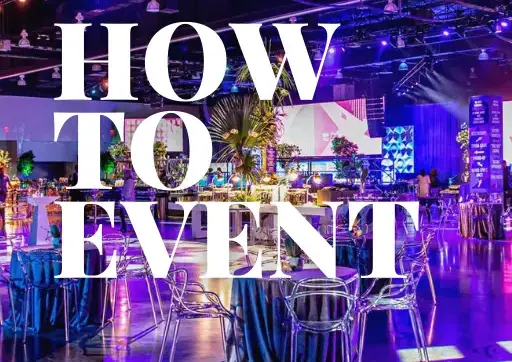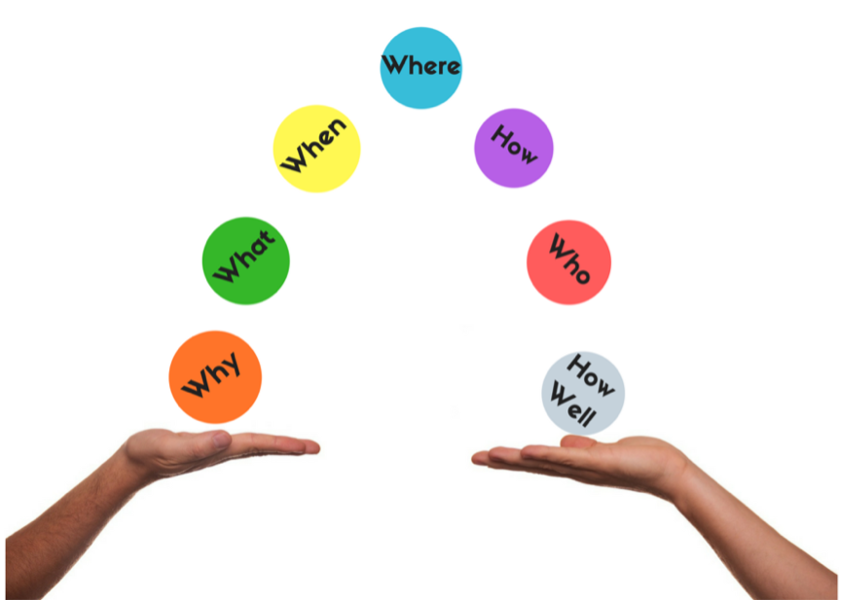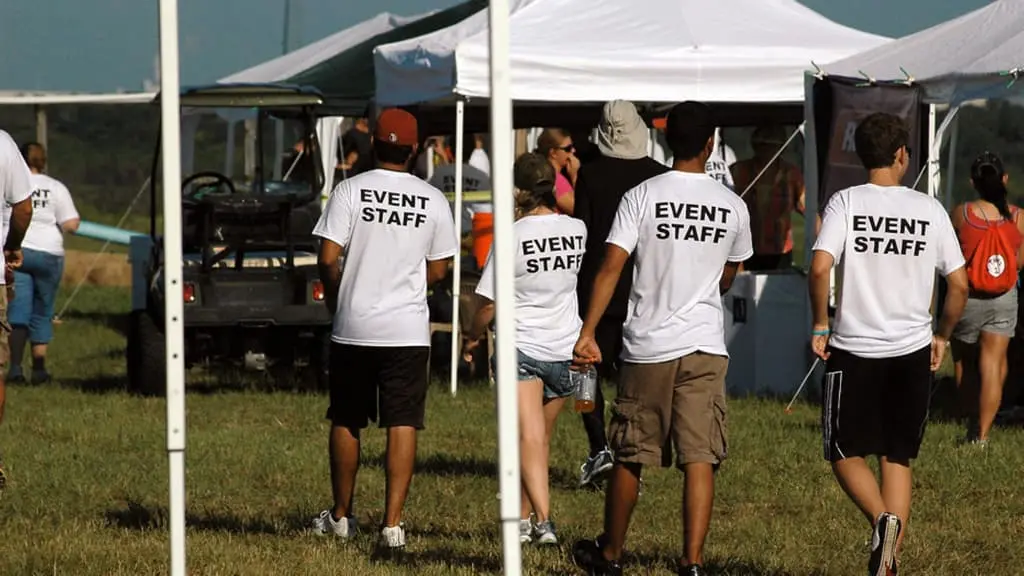Throughout history our communities have come together to celebrate, to learn, to enjoy theatre, music or sport.
Event management therefore is as old as civilised society however it remains a small industry of unique individuals who have a huge range of skills and who at times have to work under an enormous strain to ensure that the “show must go on”; people who forego their own weekends, nights and public holidays to ensure the enjoyment of others. That said it is so much fun.
One of the most challenging elements of event management is focus! Events are time specific therefore you don’t get the gift of time, all the way through the process you will choose to complete one activity over another competing activity. Sometimes these will be choices you make and other times they will be forced upon you by suppliers or circumstance.
But before you do all of that you need to get your event off the ground. You may not need all of what follows to get your event off the ground but thinking about the event vision, event concept, creating event goals, knowing how to pitch your event and whether your event is feasible will certainly increase the chance of your event being a success!
Writing a vision for your event
Let’s talk about vision – why are you running your event?
Great events are about the bigger picture. Ask these questions…
- Why is the event being held?
- What will engage your audience?
- What do they want to hear, to see, to smell?
- What will make them lean in for more, get them off their devices and shush the person sitting next to them?
Events are about make an emotional connection and you need to be very clear about what you are trying to achieve. Is it to raise money, give back to the community or celebrate an important event in your life? The Why is critical to the eventual outcome.
People do and buy things that make them feel good. Your event must tap into something special inside each of your attendees. A good example of this is if you are running a school fete. A great way to connect with the attendees is to get their kids involved. Parents love seeing their kids in the spotlight!
A vision creates understanding about what you are trying to achieve, the purpose of the event and the principles that drive your decision making along the way.
Sometimes you will be the event manager not the event creator so if you are it is even more important to understand why the event exists, this understanding will drive everything you do and help you connect with volunteers, suppliers, customers and any other stakeholders.
Sometimes it might seem a bit of an overkill to create a vision for your event, however, with all of the competing priorities you will face when creating and managing an event along with everything else in your work and personal life the vision will keep you anchored in what you want to achieve. When you feel a little lost come back to the vision and remind yourself why you began the event in the first place.
It’s important that your vision is simple to understand, to communicate, to inspire. It should be short and easy to remember for you and your employees. It needs to be aligned to the organisational or personal values and it should be ambitious, so it challenges yourself and others.
Ask
- Why is the event being held?
- What are your personal or organisational values?
These will underpin everything you do when managing the event.
Crafting an Event Concept
It doesn’t matter how big or small your event is, all events start from an idea, a concept. Once you have created your vision it is time to craft the event concept. The event concept is the way you describe the event. It may be a community fete, an outdoor festival, food and wine festival, an auction, a trivia night, a sporting event, a wedding, the list goes on and on.
Event concepts can change over time as you get more information from stakeholders and you understand the environment in which the event will be held, so don’t get too caught up if the concept changes over time, as long as you can connect it back to the event vision that is ok.
To come up with some event concepts you can use the thought starters following to work through some of your ideas.
3 Ideas that suit this Event Type
- What is expected of this type of event?
- Based on other events what could I do more of?
- Based on other events what could I do less of?
- What would make this event different from other like events?
Event Goals
Once you have your vision and concept you can then create goals to keep you on track during the planning process. Event goals will also provide you with the basis of you post event review. Checking back against goals that were set at the beginning of the process will help show how well the event performed and whether it should be done again in the future.
A straightforward way of setting goals is to use the SMART model. Are your goals Specific, Meaningful, Achievable, Relevant and Timely?
Six goals should be enough.
Your Event Pitch
To get your event off the ground you may have to pitch your event vision and concept to a committee, your boss or sponsors, this is a crucial stage of the event.
Some of the things you will need to consider are your own presentation ability, can you speak clearly and concisely to a group of people? You may want to learn more about presentation skills.
Make sure you understand your audience, what is in it for them listening to your pitch, how will the event benefit them?
A school committee for example may want to understand the costs of conducting the event and the benefits to the school before giving approval. A sponsor on the other hand will want to hear the benefits to their brand by being involved.
When pitching match your tone with the event, if it’s a fun event your pitch should be upbeat, if it’s a serious event be serious, dress professionally. Be ready for questions you may be asked by your stakeholders and make sure you have an answer.
Is Your Event Feasible?
After your successful pitch, you may need to conduct a feasibility study. This is when you provide more detail about the event including the concept, the activities, the timing and the venue.
A feasibility study helps show if the event concept practical and if it can be delivered by the resources available. Resources include available money, people and time. A feasibility study will also help you determine if the event will make more money than it will cost to run.
A formal feasibility study includes the following subject headings –
- executive summary – This section is no more than one page long and summarises all of the information in the rest of the report
- event description – details all your decisions to date about the event, it would include the event vision, goals and general concepts. You would also include a suggested event date or range of dates in this section
- environmental analysis – details the environment in which the event is to be held, also list the potential environmental impacts. These maybe things such as noise, waste, traffic management and other event arrangements that may impact on the surrounding environment
- marketing strategy – here you would detail the potential purchasers of event tickets and sponsors. The marketing strategy details how the event manager will go about engaging with the marketplace
- organisational strategy – how the organisation will be able to meet the task requirements of the event. It will detail what current organisational resources are available to work on the event and also what additional resources, if any, are required
- implementation schedule – the important time frames you have identified for the event. It will include important milestones
- financial projections – all known event costs and those assumed or estimated costs. It will also include assumptions about sales and attendances at the event, these projections should be as realistic as possible
- findings and recommendations – a summary of the information included in the rest of the document in the form of a finding or a recommendation as to whether the organisation can confidently proceed with the running of the event
It may not be necessary to do a formal feasibility study; a discussion may be enough to consider if the event concept is feasible.
Event managers need to be the calmest person in the room because things can and do go wrong, by being clear about your event vision and concept, setting realistic goals, pitching your event to get the support you need and finally making sure your event is feasible will put you in a much better position to deal with issues as they arise and still put on a fantastic event because of you preparation and planning.







